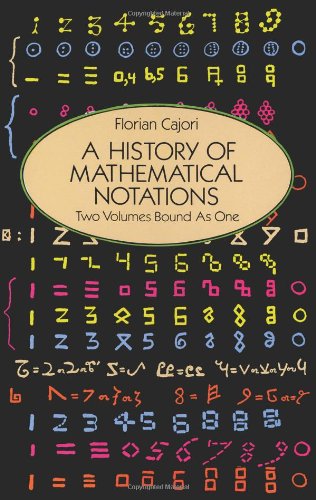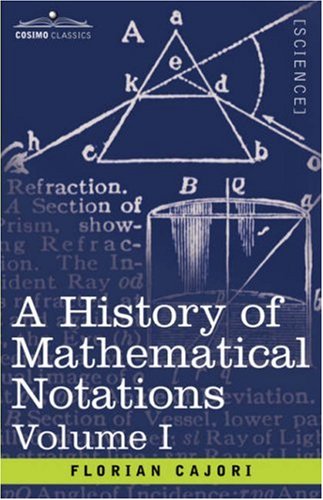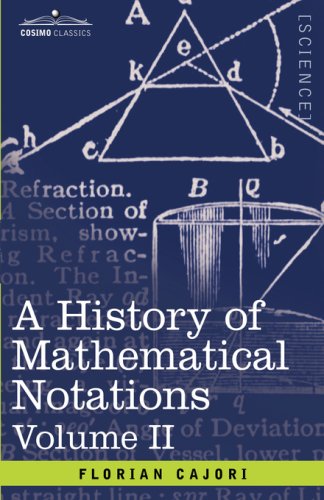Florian Cajori
Dover Publications | 1993 | 820 páginas | PDF | 34 Mb
This classic study notes the first appearance of a mathematical symbol and its origin, the competition it encountered, its spread among writers in different countries, its rise to popularity, its eventual decline or ultimate survival. The author’s coverage of obsolete notations—and what we can learn from them—is as comprehensive as those which have survived and still enjoy favor. Originally published in 1929 in a two-volume edition, this monumental work is presented here in one volume.
A History Of Mathematical Notations
Vol I
Florian Cajori
The Open Court Publishing Company | 1928
on-line: archive.org
xa.yimg.com (link direto)
uploading.com (PDF - 2,3 Mb)
A History of Mathematical Notations
Volume II
Florian Cajori
The Open Court Publishing Company | 1929
archive.org
uploading.com (PDF - 34 Mb)
Described even today as "unsurpassed," this history of mathematical notation stretching back to the Babylonians and Egyptians is one of the most comprehensive written. In two impressive volumes--first published in 1928-9--distinguished mathematician Florian Cajori shows the origin, evolution, and dissemination of each symbol and the competition it faced in its rise to popularity or fall into obscurity.
Illustrated with more than a hundred diagrams and figures, this "mirror of past and present conditions in mathematics" will give students and historians a whole new appreciation for "1 + 1 = 2."
Swiss-American author, educator, and mathematician FLORIAN CAJORI (1859-1930) was one of the world's most distinguished mathematical historians. Appointed to a specially created chair in the history of mathematics at the University of California, Berkeley, he also wrote An Introduction to the Theory of Equations, A History of Elementary Mathematics, and The Chequered Career of Ferdinand Rudolph Hassler.
A list of Oughtred's mathematical symbols, with historical notes
Berkeley: University of California press | 1920
archive.org
Outros livros de Florian Cajori on-line em: archive.org



Nenhum comentário:
Postar um comentário